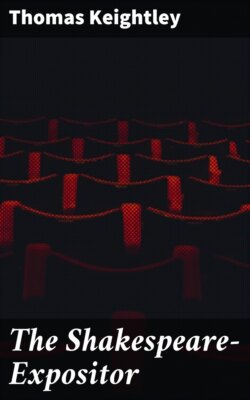Читать книгу The Shakespeare-Expositor - Thomas Keightley - Страница 55
На сайте Литреса книга снята с продажи.
10.
ОглавлениеSubstitution.—"He who has not repeatedly observed how a copyist, from inattention, sets down a word which his mind has presented to him instead of that which is before his eyes, must have seen little of copies of print or manuscript." These are the words of a Spanish writer, and they are of universal application. I remember myself once, with Herodotus before my eyes, writing Sestos for Abydos; and the changes I have made in copying passages for this work have amazed me. In Corneille's play of Rodogune (i. 1), we read enlever where the proper word is élever, and Voltaire justly suspected that it was an error of the original printer. Further on the reader will meet with a similar error in the original edition of Tasso's Gerusalemme.
The most ordinary case of substitution seems to be that of synonyms; at least there is none to which I have been so subject myself. In giving examples I will commence with Spenser.
A yearly solemn feast she wonts to make.
F. Q. ii. 2. 42.
Now, as the rimes are hold, told, the poet must have written, or have intended to write, hold.
That doth against the dead his hand uprear.
Ib. ii. 8. 29.
Here the word must have been upheave, the rimes being leave, cleave, bereave.
When walking through the garden them she spied.
Ib. iii. 6. 40.
As the rimes are law, draw, we must of course read saw.
Of finest gold. The fifth game was a great new standing bowl,
To set down both ways. These brought in, Achilles then stood up.
Chapman, Iliads, xxiii. 249.
The right word, it is quite plain, is cup.
Or painful to his slumbers; easy, sweet,
And as a purling stream, thou son of Night.
Fletch. Valentinian, v. 2.
Here, as it has been shown, the proper word is light; yet Mr. Dyce has not ventured to receive it.
Mi si scoperse; onde mi nacque un ghiaccio
Nel core, ed evvi ancora,
E sarà sempre, fin ch'io le sia in braccio.
My late friend Rossetti, in copying out this passage of Petrarca in his Amor Platonico, etc., wrote gelo for ghiaccio, and never saw the error, even in reading the proof; and so it is printed.
On the other hand, the adjacent or riming lines sometimes terminate in the same word. There are many instances in Shakespeare, and I have met with the following in Italian.
Ciascun de' cavalieri ebbe e sergenti
Ed al servizio suo donne e sergenti.
B. Tasso, Amadigi, xxii. 67.
where, as the rimes show, the first line should end with una stanza.
Bears in his boasted fan an Iris bright,
When her discoloured bow she spreads through heaven bright.
F. Q. iii. 11. 47.
We meet also with places where the sense or the metre, unaided by rime, must be our guide in correcting—ex. gr.,
The round earth, heaven's great queen and Pallas to whose bands.
Chapman, Iliads, i. 395.
Here the metre shows that the right word is Minerva, not Pallas.
There is one most remarkable case of substitution to which sufficient attention has never been given by the critics. It may be termed reaction or repetition, and arises from the impression made by some particular word on the mind of the transcriber or printer, or even of the writer himself.
Thus in a proof-sheet of my Milton I found
A furnace horrible on all sides round,
As one great furnace flamed.
Par. Lost, i. 61.
while the word before the compositor's eyes was dungeon.
